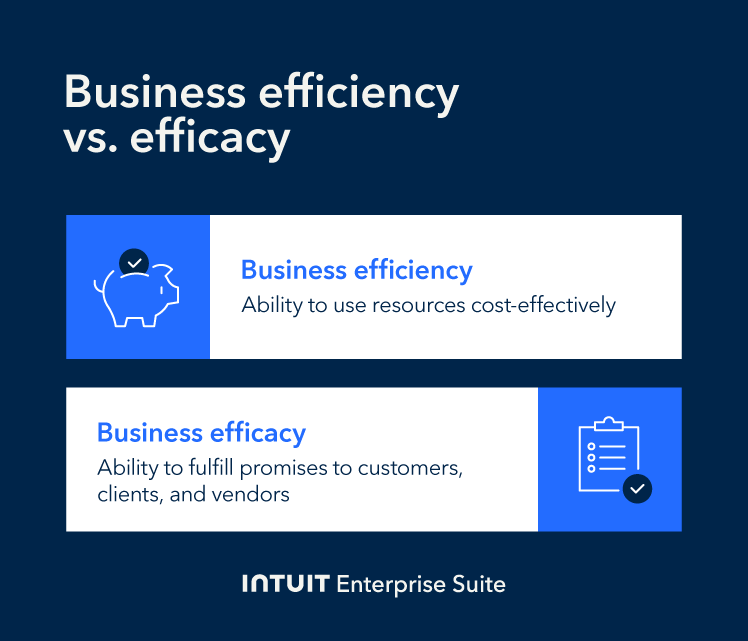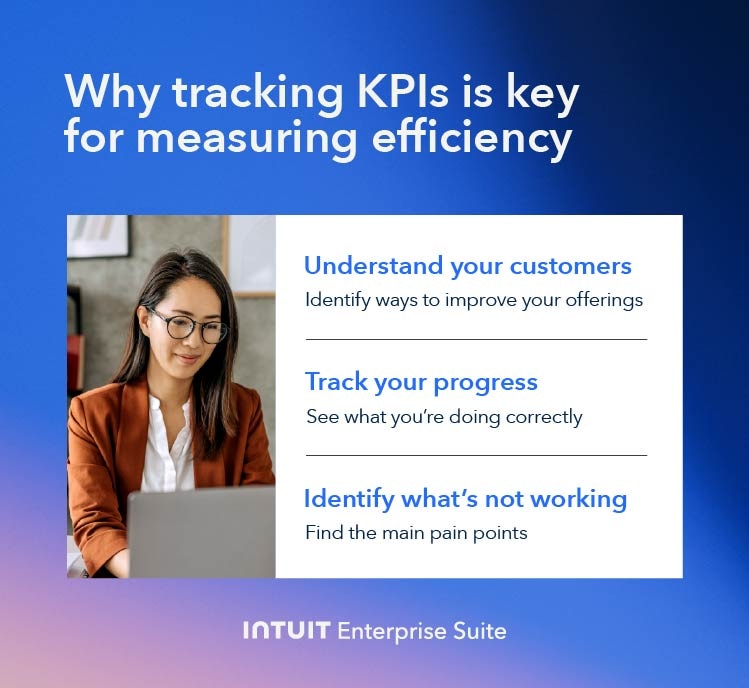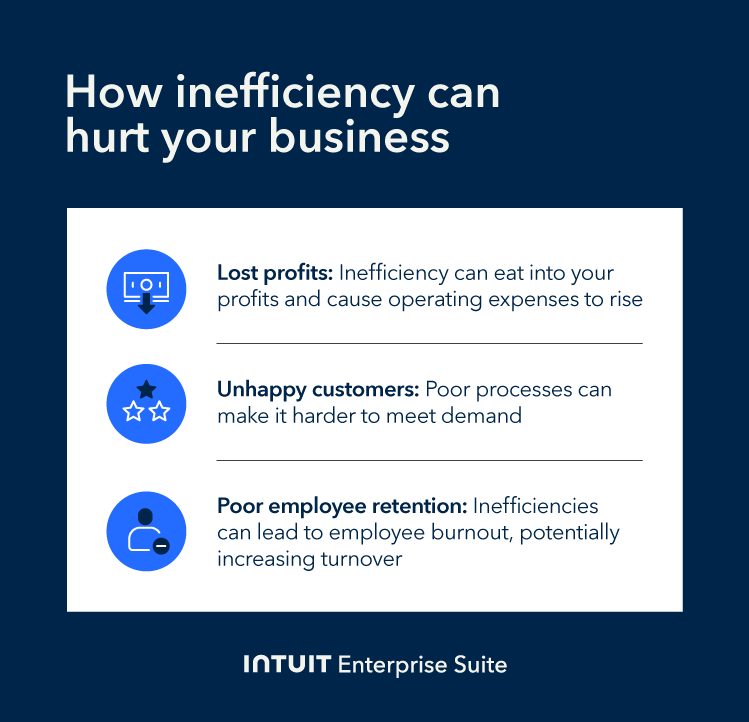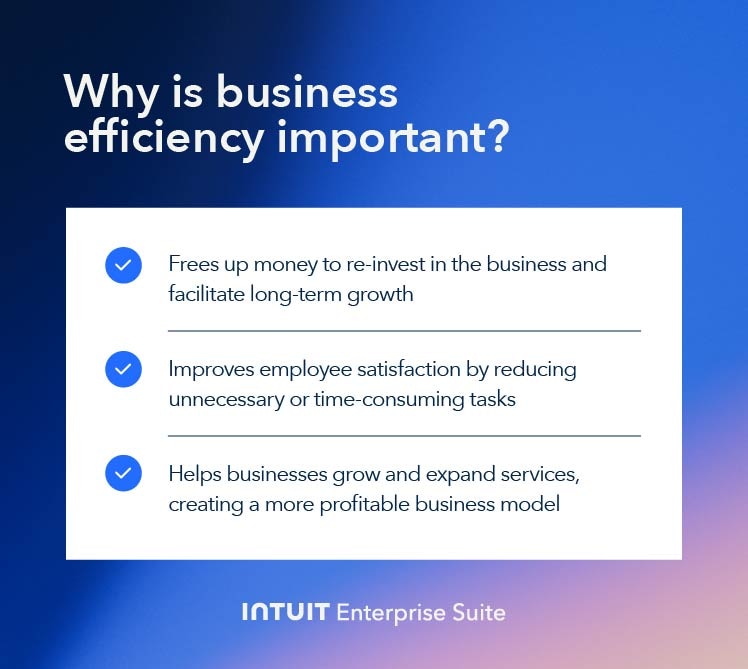Types of business efficiency
There are several ways to gauge business efficiency. Here are some of the most important areas of focus:
Operational
Business operations encompass the various operations an organization uses to produce goods and services. This includes aspects such as:
Operational expenses usually make up the majority of a company’s costs. Accordingly, it’s important to focus on operational expenses to improve business efficiency.
Financial
This refers to how well a company uses its assets to generate income. Common measures of financial efficiency include:
- Overall profitability
- Fixed asset turnover
- Receivable turnover
- Inventory turnover
As a rule of thumb, operational costs should be 60% or less of revenue, while expenses should be 30% or less of revenue.
Time
Maximizing time should be a daily priority for businesses in all industries. Rather than adhering to overly generous deadlines, your team should spend the minimum time necessary to complete a task successfully.
Look at your current timelines and see if shortening them would be in your best interest. If your team is finishing tasks ahead of schedule and has nothing to do until your next business sprint, restructuring those tasks to shorten their time estimate may help you accomplish more at the same price point.
Resources
Running a lean operation can save money while still getting the work done promptly. Compare the number of employees to the revenue you’re bringing in. Efficient businesses have only the employees and resources necessary to get the job done.


 Keeping your business as efficient and lean as possible can save you money now and in the future. Look for ways to cut costs without sacrificing the quality of the services or products you provide.
Keeping your business as efficient and lean as possible can save you money now and in the future. Look for ways to cut costs without sacrificing the quality of the services or products you provide.






